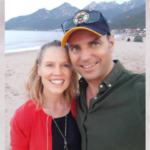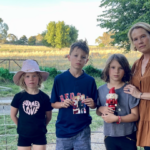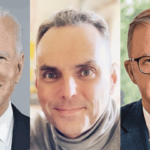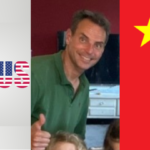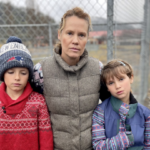Australia Will Detain Citizens in Long-Term Isolation Without Charge, On the Say So of the US
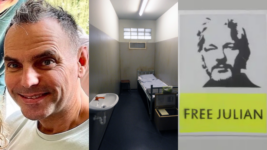
The use of solitary confinement or isolation is controversial to say the least, as this method of punishing an inmate by detaining them alone in a cell is said to cause psychological harm. And when it comes to prolonged isolation, UN minimum standards recommend the practice is never used.
Despite this, the Albanese government currently has Australian citizen Daniel Duggan detained in prolonged isolation in the maximum-security Lithgow Correctional Centre at the behest of the Biden administration. And this facility is second only to Goulburn prison in severity in NSW.
Dan is in a four by two metre cell for 22 hours a day, and he’s not even charged.
Duggan was taken into custody by AFP officers in the NSW town of Orange on 21 October 2022, and has since been held in isolation, over allegations that while he taught flying at a South African flight school circa 2010, after serving in the US marines for 13 years, he also trained Chinese military pilots.
The US having Duggan stuck alone in a cell by an ally has obvious similarities to the plight of fellow Australian WikiLeaks journalist Julian Assange, whose been in prolonged isolation since April 2019 in the UK, while both US indictments against them were issued under the Trump administration.
Both Australian citizens are also widely considered to be held on indictments containing trumped up US charges, and further their situations are thought to be yet more examples of how Canberra has sold out Australian sovereignty to Uncle Sam.
A torture practice
The original UN Standard Minimum Rules for the Treatment of Prisoners were adopted in 1955 and updated in 2015. The new document was dubbed the Mandela Rules in memory of revered antiapartheid activist Nelson Mandela, who spent 27 years in detention classed as a terrorist.
The UN standard minimum rules are nonbinding. However, they’re supposed to act as guidelines for international and domestic law in terms of how those in custody of authorities should be treated. Of course, as events in the Middle East of late have shown, not all nations play by the rules.
Rule 44 defines solitary confinement as “the confinement of prisoners for 22 hours or more a day without meaningful human contact”, whilst prolonged isolation, where Duggan is right now, refers to solitary confinement for a time period in excess of 15 consecutive days.
And rule 43 states that “in no circumstances may restrictions or disciplinary sanctions amount to torture or other cruel, inhuman or degrading treatment or punishment”, and it goes on to list five practices prohibited in light of this, which include prolonged solitary confinement.
Right now, Dan is stuck in his cell except for having two hours open-air exercise a day. For the first eight months of his incarceration period, however, he was provided no time to exercise outside, which is in direct contravention of Corrective Services NSW policy.
The father-of-six Australian children also lost his regular exercise period for a number of weeks over the 2023-24 holiday period.
US detention
Another potential similarity to the Assange case, and concern for the #FreeDanDuggan campaign, are the fears that the WikiLeaks founder would be subjected to special administrative measures (SAMS), a US regime of extreme isolation usually reserved for terrorists, on extradition to the US.
The grave issue for Assange is he was hauled up in London’s Ecuadorian Embassy for seven years, which served as a form of detention, prior to being remanded in Belmarsh for close to five, so his health has deteriorated to the point where its thought being sent to the US would mean his death.
So, whilst Dan has spent much less time on remand, if he is extradited and convicted by a US court, he faces up to 60 years prison. And it would seem that extra measure detention might be applied to Duggan as well, as he’s been treated as a high-risk inmate here, just like Assange in the UK.
Reds under the bed
Yet, there’s more to the Duggan case. The fact that the Australian public is being prepped for a coming war with China is no controversial matter. And as former foreign minister Bob Carr has pointed out, the local media shifted to “a China panic”, considering the nation a threat, in 2017.
This was the same year, a US District of Columbia Grand Jury indictment was issued under the name of Dan Duggan over an alleged conspiracy “to export, or attempt to export, and propose the exportation of defence services to the People’s Republic of China in violation of an arms embargo”.
Two-Thousand and Seventeen was also the same year that then CIA director Mike Pompeo decided to pursue Assange, which went as far as the spying agency considering kidnapping and assassination plots.
Again, following the formula of the Assange case, attorney general Mark Dreyfus signed off on extradition on 9 December 2022, under the terms of the 1976 Treaty on Extradition between Australia and the United States, which forbids extradition over charges that are political in nature.
Both Duggan and Assange are facing political charges. The two relating treaties prohibit extradition on political offences. And both men are slowly being tortured in their prison cells, using a legitimate local practice that’s condemned as harmful at the highest levels.
Julian is being pursued over normal journalistic practices, while it’s the revelations his publishing made that caused a stir.
Dan is being condemned for taking a post-service option that many military pilots do, and many believe the turn against it, which involved the UK investigating its own pilots and Australia suggesting it may follow, simply because it serves to foster the China panic in the buildup to war.
Serious discrepancies
Dan has been appearing in a series of hearings as his lawyers attempt to secure a number of classified Defence documents. Any decision on extradition won’t happen until at least May. And renowned barrister Bernard Collaery is set to testify during Duggan’s next court appearance.
Another key matter regarding the AG’s decision to extradite is that the Inspector General of Intelligence and Security last March determined to investigate a compliant by Duggan that ASIO had lured him to this country via the promise of an Aviation Security Identification Card in mid-2022.
An ASIC card would allow Duggan to work in Australian airports, as, at the time, Duggan was managing an aviation consultancy in the city of Qingdao in China’s Shandong Province.
The issue arises as Dan was offered an ASIC card whilst overseas, which was no longer available on arrival back in Australia, and while US intelligence agencies are allowed to lure suspects in this manner under US law, it’s illegal for Australian spies to utilise such tactics.
Damn the constituency
Dan’s wife, Saffrine Duggan, and his six Australian children have come to understand that this nation has forgone its sovereignty to the US in a manner that most people living here continue to be unaware of, especially when Washington requisitioned what was a soon-to-be family home.
The AFP applied a local seizure order to the sale of a southern NSW property that has a part-built family home upon it, belonging to Saffrine last October. And on appeal, the NSW Supreme Court ruled on 6 December that the order stood, and the property can’t be sold.
The court determined to continue to seize the property, despite federal police admitting it had mistakenly identified Duggan as a director of the company that owns it, which was taken to have “peripheral evidential relevance”, and that source of funding for legal fees is gone.
“The US government has boxed us into a corner with no care for the rights of our Australian family,” Saffrine said in a statement last week.
“We now have to go through the lengthy process of applying for legal aid and reshaping our legal team and defence, in light of all these events,” she made certain.


